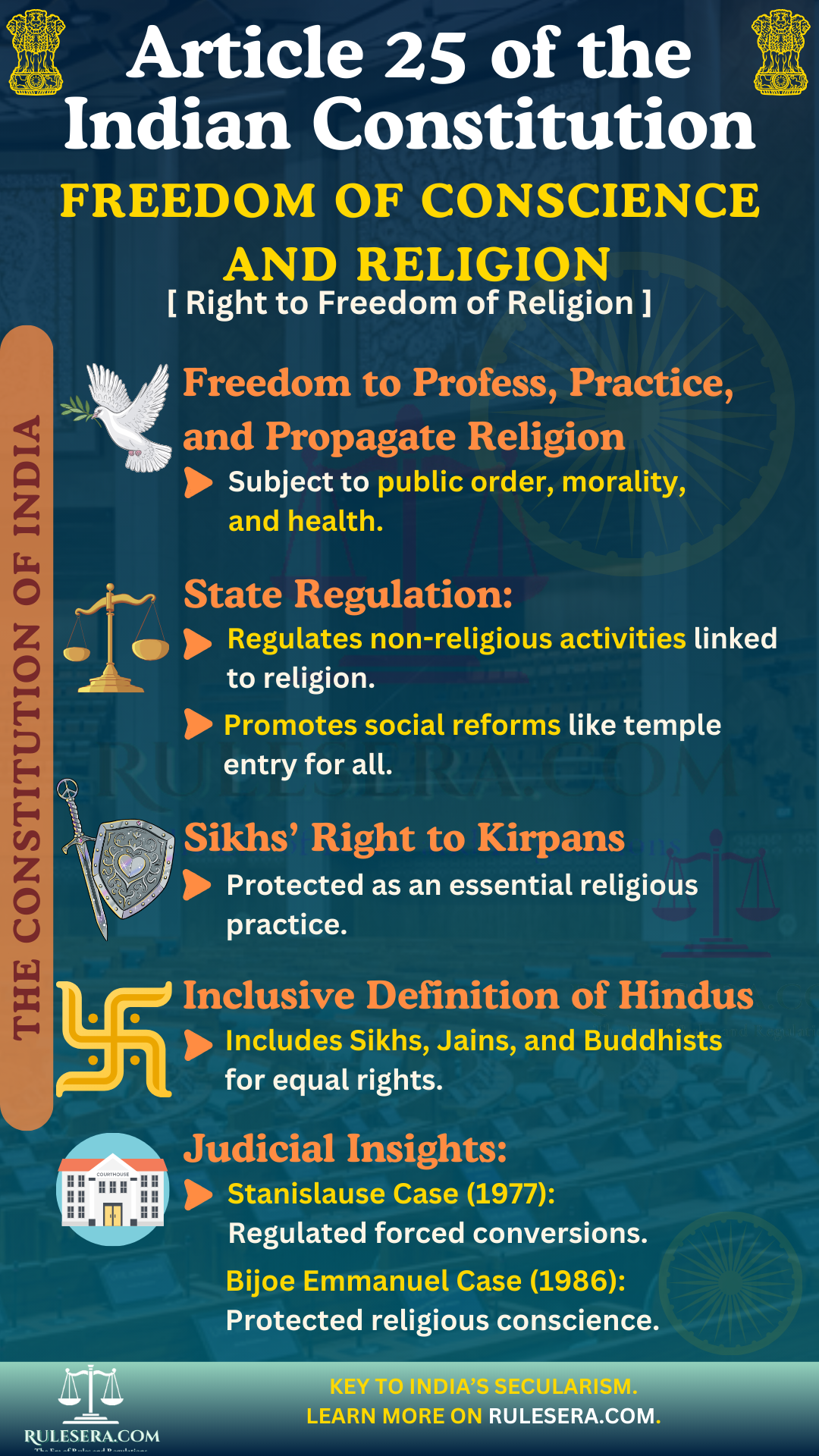Part III: Fundamental Rights
Article 25: Freedom of Conscience and Free Profession, Practice, and Propagation of Religion:: Right to freedom of Religion

(1) Subject to public order, morality, and health, all persons are equally entitled to freedom of conscience and the right to profess, practice, and propagate religion.
(2) Nothing in this article shall affect the operation of any existing law or prevent the State from making any law—
- (a) regulating or restricting any economic, financial, political, or other secular activity associated with religious practice;
- (b) providing for social welfare and reform or allowing all classes of Hindus access to Hindu religious institutions of a public character.
Explanation
Article 25 grants individuals the right to freedom of religion, including the freedom of conscience and the right to profess, practice, and propagate religious beliefs. This right is balanced with the need for public order, morality, and health, and it allows the State to regulate secular activities and promote social reforms.
Key Aspects of Article 25
- Right to Practice and Propagate: Ensures individuals can freely follow and spread their religious beliefs, subject to limitations.
- State Regulation: Allows the State to regulate economic and secular activities associated with religion, ensuring social welfare and reform.
- Inclusion of Kirpans: Affirms that carrying kirpans is part of the Sikh faith, ensuring this practice is constitutionally protected.
- Broad Definition of "Hindus": Includes Sikhs, Jains, and Buddhists, ensuring equal access to public religious institutions.
Real-Life Applications
The Stanislaus v. State of Madhya Pradesh case (1977) limited the scope of religious propagation by holding that forced conversions violate the rights of others, allowing the State to regulate such practices under public order.
Frequently Asked Questions (FAQs):
Article 25 provides for freedom of conscience and the right to profess, practice, and propagate religion, subject to public order, morality, and health.
Yes, the State can regulate secular activities associated with religion and promote social welfare and reform, particularly in public religious institutions.
Yes, Explanation I of Article 25 includes the carrying of kirpans as an integral part of the Sikh religion, thus constitutionally protected.